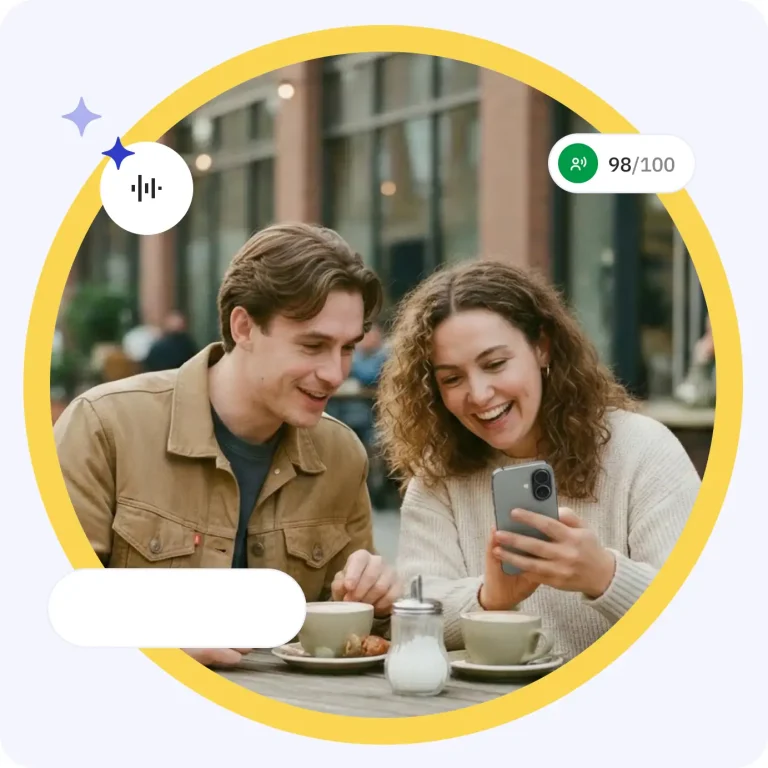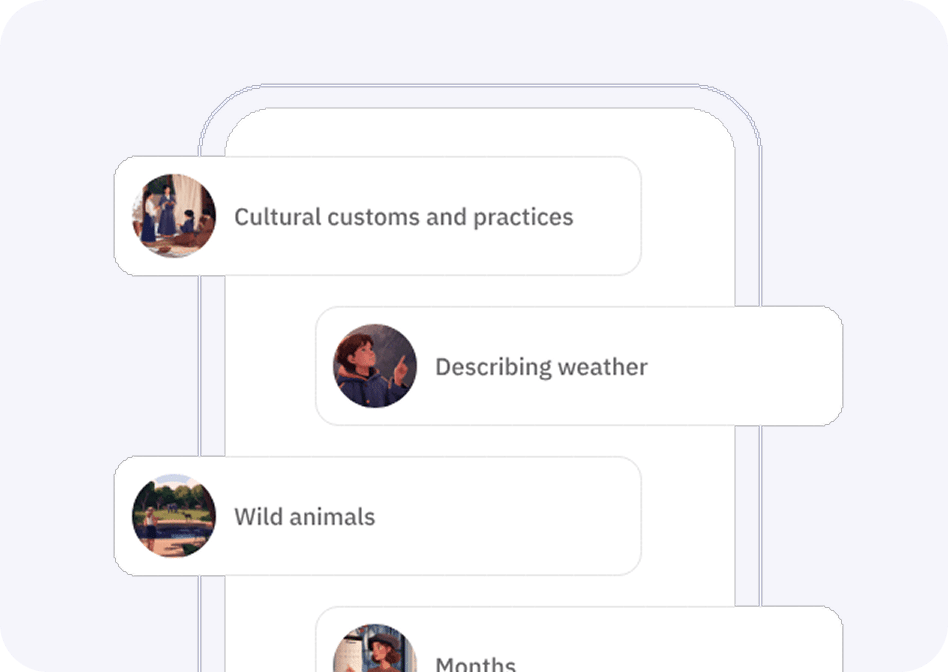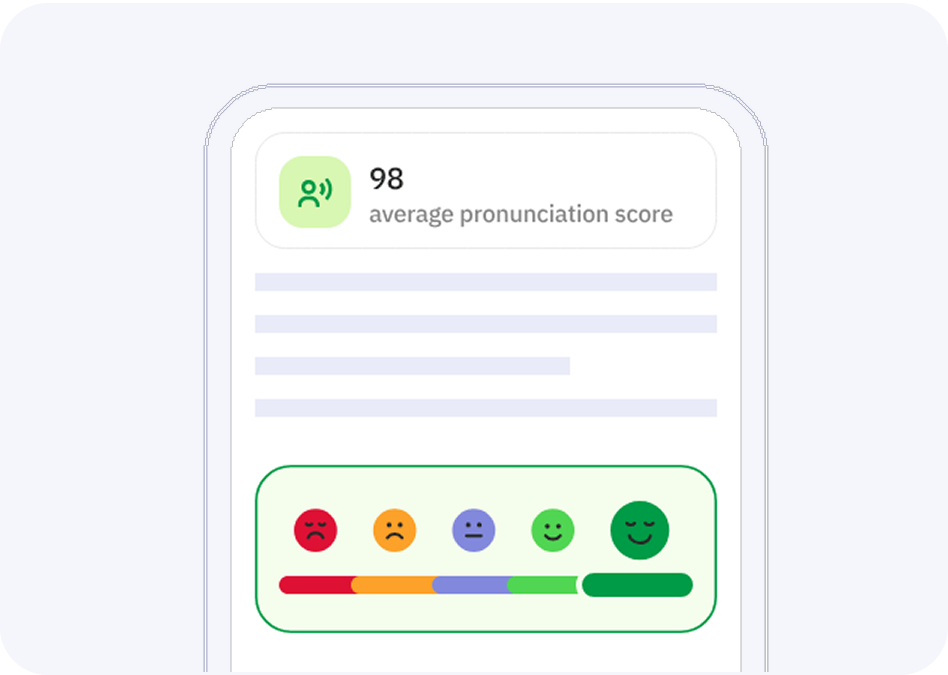Great Language Learning Apps
In today’s fast-paced digital world, learning apps have become invaluable tools for students, professionals, and lifelong learners. These apps offer accessible, flexible, and interactive ways to enhance educational experiences, covering a wide range of subjects including languages, math, science, and more. This page explores some of the best learning apps available, particularly focusing on those that facilitate language learning, such as the innovative Talkpal AI. Discover how these apps can transform conventional learning methods and make education more engaging and effective.

The talkpal difference

Personalized Education
Every student has a distinct approach to acquiring knowledge. Through Talkpal technology, we analyze the study patterns of millions simultaneously to build highly effective educational environments that adapt specifically to individual needs. This ensures your journey is fully customized based on your interests and goals rather than a generic curriculum.

Cutting-Edge Technology
Our central mission is to lead the way in providing universal access to a tailored learning journey. By utilizing the most recent breakthroughs in artificial intelligence and modern software, we ensure that everyone can benefit from a sophisticated and personalized educational experience.

Making Learning Fun
We have transformed the study process into a delightful activity. Staying motivated while learning online can often be a struggle, so we designed Talkpal to be incredibly captivating. The platform is so engaging that users frequently prefer mastering new language skills over playing video games.
LANGUAGE LEARNING EXCELLENCE
The most efficient way to learn a language
Try Talkpal for freeIn today’s fast-paced digital world, learning apps have become invaluable tools for students, professionals, and lifelong learners. These apps offer accessible, flexible, and interactive ways to enhance educational experiences, covering a wide range of subjects including languages, math, science, and more. This page explores some of the best learning apps available, particularly focusing on those that facilitate language learning, such as the innovative Talkpal AI. Discover how these apps can transform conventional learning methods and make education more engaging and effective.
Introduction to Learning Apps: Revolutionizing Education
1. The Evolution of Learning Apps
The revolution in education technology has led to the development of sophisticated learning apps, providing users with enhanced flexibility and resources. These apps cater to various educational needs, offering personalized experiences that are often gamified to increase engagement. Users can learn at their own pace and convenience, breaking free from the constraints of traditional classroom settings. This evolution has fundamentally changed how knowledge is acquired and shared, making education more accessible to a wider audience worldwide, including remote and underprivileged regions.
2. Talkpal AI: A Leader in Language Learning
Talkpal AI stands out as a premier learning app for those aiming to master new languages. Integrated with advanced artificial intelligence, it offers personalized learning experiences that adapt to the user’s proficiency level and learning speed. Talkpal AI uses natural language processing tools to help learners practice pronunciation, expand vocabulary, and understand grammatical nuances of their target language. Through interactive sessions and real-time feedback, learners can improve their language skills in a conversational and intuitive manner.
3. Benefits of Learning Apps for Busy Individuals
Learning apps are particularly beneficial for busy individuals who struggle to find time for continuous education. With features that allow users to learn in bite-sized sessions, these apps can fit seamlessly into daily routines—during a commute, on a lunch break, or before bed. The flexibility to choose learning times and the types of lessons helps maintain consistent progress without the need to attend scheduled classes. Apps like Talkpal AI enable users to practice languages on the go, making every moment an opportunity to learn.
4. Interactive Features Enhance Learning Experience
Modern learning apps incorporate interactive features that greatly enhance the learning experience. Features such as quizzes, flashcards, and interactive games make the process enjoyable and engaging. These elements not only make learning more interesting but also help reinforce the material. Additionally, many apps offer features like speech recognition for practicing speaking, and AI-driven recommendations for personalized learning paths. Such capabilities ensure that learners are not merely passive recipients of information but active participants in their education.
5. Access to Global Content
One significant advantage of using learning apps is the access they provide to a vast array of global content. Learners can explore different cultures and languages from around the world without leaving their home. This is particularly beneficial for language learners who can immerse themselves in various linguistic contexts and dialects, enhancing their understanding and appreciation of the language. Talkpal AI, for instance, offers diverse modules that cover multiple languages and dialects, facilitating a comprehensive learning experience.
6. Cost-Effectiveness of Learning Apps
Compared to traditional education methods, learning apps often prove to be a more cost-effective solution. Many apps offer free versions with valuable content, while premium features are typically available at a fraction of the cost of conventional learning methods like tutoring or coursework. This affordability allows individuals from different economic backgrounds to access quality education and self-improvement tools without significant financial investment, making learning more democratic and universally accessible.
7. Learning Apps for Children and Teenagers
Learning apps are not just for adults; they also offer great benefits for younger users. Apps designed for children and teenagers often use vibrant animations, storytelling, and interactive challenges that cater to their imaginative and curious nature. These apps can reinforce school learning, introduce new concepts, or offer help with homework and exam preparation. By integrating educational content with fun elements, these apps maintain engagement levels and motivate younger learners to continue exploring and learning.
8. Continuous Improvement through Feedback
Many learning apps, including Talkpal AI, incorporate feedback mechanisms that allow continuous improvement of learning strategies. AI algorithms analyze the user’s performance data and provide customized feedback, helping learners understand their strengths and areas for improvement. This adaptive learning approach personalizes the experience, ensuring that each learner’s unique needs and learning styles are catered to effectively. Continuous feedback helps maintain a constructive learning curve and ensures that users are always motivated to advance.
9. Building a Community of Learners
Some learning apps extend beyond individual learning experiences to foster a sense of community among users. These platforms offer discussion forums, peer-to-peer challenges, and collaborative projects that allow interaction with fellow learners globally. This social aspect can be significantly motivational, as it introduces elements of companionship and competition. For language learners, interacting with native speakers and other learners provides practical experience and cultural insights, enhancing the overall learning process.
10. The Future of Learning Apps
As technology continues to advance, the future of learning apps looks promising with potential developments in augmented reality (AR) and virtual reality (VR) integrations. These technologies could simulate real-world environments for immersive learning experiences, especially in fields like language, science, and history. The ongoing integration of AI will also continue to enhance personalized learning, making education even more accessible, effective, and enjoyable for everyone. As these technologies evolve, learning apps will undoubtedly play a pivotal role in shaping the educational landscape of the future.
The most efficient way to learn a language
Try Talkpal for freeFrequently Asked Questions
What are learning apps?
Can learning apps improve language skills?
Are there learning apps suitable for children?
How do I choose the right learning app?
Are there any free learning apps?







